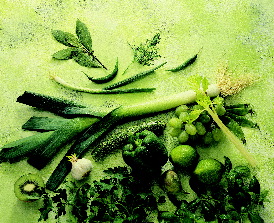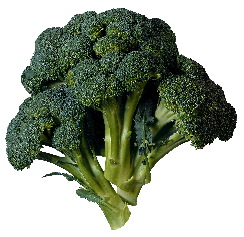Naturopathic health
Diabetes Alternative Treatments
Diabetes Herbal Remedies & Complementary TherapiesDiabetes Mellitus is the most common of the endocrine (glands that release hormones) disorders affecting over 1% of all people living in the western world. The basic problem in diabetes is that, because the body fails to produce sufficient insulin, the level of glucose in the blood is higher than normal while the level found within other cell types is lower. The causes are complex and it can result in a range of complications that occur primarily in the arteries and capillaries. There are two types of diabetes: Type 1 diabetes, sometimes referred to as juvenile onset diabetes, (approximately 10% of cases) is generally hereditary and once diagnosed is chronic and insulin dependent. Type 2 diabetes is generally brought on by poor diet, obesity, stress and a sedentary lifestyle. It can often be controlled through diet and other complementary treatments. In the past this was refered to as mature onset diabetes but recent changes in children's diet and activity levels has dramatically reduced the ages at which type 2 diabetes is now being diagnosed. Diabetes lifestyle and diet:Diet is a major consideration in the treatment and control of diabetes. A recent analysis showed that people with higher dietary intakes of magnesium (through consumption of whole grains, nuts, and green leafy vegetables) had a decreased risk of type 2 diabetes. Alpha-lipoic acid ALA (also known as lipoic acid or thioctic acid) is a chemical that is similar to a vitamin. ALA is found in some foods, such as liver, spinach, broccoli, and potatoes. It is an antioxidant and high levels of blood glucose are one cause of oxidative stress. Some studies have shown the benefits of ALA for type 2 diabetes and a diet relatively high in this chemical is recommended. Although there are differences in treatment for Type 1 and Type 2 diabetes, the dietary advice for managing both types is the same. There is no special diabetes diet instead it should be based on the same principles of healthy eating that everyone should follow. However good diet is even more important for diabetics. Excess body weight is associated with the onset of type 2 diabetes and is also associated with high blood pressure and increased risk of cardiovascular disease eg heart attack, stroke, angina. Diabetes, particularly Type 2, is easier to control when your weight is normal and for Type 1 diabetes, controlling weight through a healthy diet will help lower blood pressure and reduce the risk of cardiovascular disease. The lifestyle pages of this website give general dietary advice including pages on foods to enjoy and foods to avoid. Diabetics in particular can benefit in taking foods that don't cause high surges of sugar in the blood such as biscuits, chocolates, cakes and other sugary foods and drinks. Starchy foods such as potatoes, pasta, bread, rice and cereals release their energy slowly because they need to be digested first. Oatcakes are great! In addition to its role in
weight loss, reducing fat intake, especially hard fats from meat, is an
essential part of managing cholesterol levels and lowering your risk of heart
disease. You can reduce fat by grilling, or steaming foods and buying lean cuts
of meat Exercise is another important factor in the control and prevention of type 2 diabetes. Our lifestyle section includes pages on exercise and Qi Gong Herbal remedies for diabetes:The root causes of diabetes are complex and treatment provided by herbal practioners will vary according to the individual. it is therefore recommended that anyone suffering from diabetes visits a professionally qualified herbal practitioner. Ginseng Studies on ginseng have shown some glucose-lowering effects in fasting and post-prandial (after meal) blood glucose levels as well as in A1C levels (average blood glucose levels over a 3-month period). In addition to ginseng western herbalists use Garlic, Goat's Rue, Jambul, Nettles, Sweet sumach and Fringetree bark to treat diabetes although the precise treatment varies depending on the nature of the diabetes and its symptoms. Ayurvedic approach There is research evidence to suggest that the single herbs Coccinia indica, holy basil, fenugreek, and Gymnema sylvestre have a glucose-lowering effect Other naturopathic treatments for diabetes:Supplements: Alpha-Lipoic Acid
It is theorized that ALA may be beneficial because of its antioxidant activity. ChromiumThe benefit of added chromium for diabetes has been studied and debated for several years. Several studies report that chromium supplementation may improve diabetes control. Chromium is needed to make glucose tolerance factor, which helps insulin improve its action. MagnesiumAlthough the relationship between magnesium and diabetes has been studied for decades, it is not yet fully understood. Studies suggest that a deficiency in magnesium may worsen blood glucose control in type 2 diabetes. Scientists believe that a deficiency of magnesium interrupts insulin secretion in the pancreas and increases insulin resistance in the body's tissues. Evidence suggests that a deficiency of magnesium may contribute to certain diabetes complications. A recent analysis showed that people with higher dietary intakes of magnesium (through consumption of whole grains, nuts, and green leafy vegetables) had a decreased risk of type 2 diabetes.VanadiumVanadium is a compound found in tiny amounts in plants and animals. Early studies showed that vanadium normalized blood glucose levels in animals with type 1 and type 2 diabetes. A recent study found that when people with diabetes were given vanadium, they developed a modest increase in insulin sensitivity and were able to decrease their insulin requirements. Acupuncture: Acupuncture has been shown to offer relief from chronic pain and is sometimes used by people with neuropathy, the painful nerve damage of diabetes. Naturopath's treat the whole person not just the disease or condition. That's why you cannot use this site for diagnosis. The information we provide should not be treated as a substitute for medical advice or treatment. We recommend that you visit a qualified naturopath or find a GP who is sympathetic to a naturopathic approach. Click here for our full disclaimer.Sources The Holistic Herbal, David Hoffman, Harper Collins - Element 2003 NCCAM Treating Type 2 Diabetes with Dietary Supplements Ayurvedic Interventions for Diabetes Mellitus - AHRQ |
Ailments
LifestyleFoods to enjoyFoods to avoid
Exercise and healthQi Gong
Find a herbalistInformation ginseng herbal remedy |
|
|
|
|
If you're starting to move towards a healthy diet and you want to take a major step forward then a detoxification programme can make a big difference. Click on the link below to find out more. Healthy Recipes Juicing SupplementsBach Flower Herbal Acupuncture Homeopathy DetoxificationMassage Qi Gong Nutrition & Diet Iridology Tissue Salts |

[Herbal Remedies][Ailments][Naturopathy][Contact][Community][Lifestyle][Home][Research]










